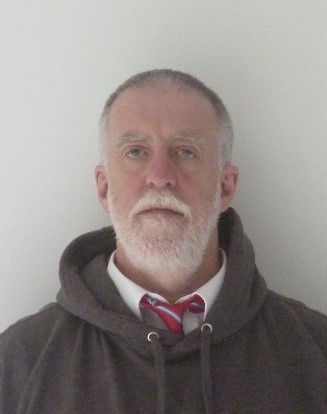
NIPAA Program
The 28th IEEE International Conference on Network Protocols (ICNP 2020)
Madrid, Spain,
October 13,
2020 Follow @IEEE_ICNP
Online participation in ICNP 2020 is exclusively via the ICNP-specific Whova site available in app and web versions.
All times are in CEST. See program at a glance.
Technical Program
10:30 am - 10:35 am Welcome (Video)
Welcome message and workshop opening.
10:35 am - 12:00 pm Session A (Video)
Session chair: K. K. Ramakrishnan (University of California, Riverside, USA)
[Keynote] The Challenge of Interdomain Innovation (45 min,
Bio,
Abstract,
Slides,
Video)
Prof. Ken Calvert (University of Kentucky, USA)
High Speed Route Lookup for Variable-Length IP Address (20 min,
Paper,
Slides,
Video)
Wanli Zhang, Xiangyang Gong, Ye Tian, and Jifan Tang (Beijing University of Posts and
Telecommunications, China)
Optimized Joint Unicast-Multicast Panoramic Video Streaming in Cellular Networks (20 min,
Paper,
Slides PDF,
Slides PPTX,
Video)
Akbar Majidi and Ahmed H. Zahran (University College Cork, Ireland)
12:00 pm - 12:30 pm Tea/Coffee Break
12:30 pm - 02:00 pm Session B (Video)
Session chair: Xiaoming Fu (University of Göttingen, Germany)
[Invited] From Reflexes to In-Network Processing - Enabling Ultra-low Latency and High
Reliability for Cyber-physical Networking (30 min, Bio,
Abstract,
Slides,
Video)
Prof. Klaus Wehrle (RWTH Aachen University, Germany)
Search-tree Based SDN Candidate Selection in Hybrid IP/SDN Network (20 min,
Paper,
Slides,
Video)
Ning Li, Zhaoxin Zhang, Xin Yuan (Harbin Institute of Technology, China), Yue Shi (CAICT, China),
and José Fernán Martínez (UPM, Spain)
RACK for SCTP (20 min,
Paper,
Slides,
Video)
Felix Weinrank, Michael Tüxen (Fachhochschule Münster, Germany), and Erwin P. Rathgeb (University
of Duisburg-Essen, Germany)
Preventing Route Leaks using a Decentralized Approach: An Experimental Evaluation (20 min,
Paper,
Slides,
Video)
Miquel Ferriol Galmés, Roger Coll Aumatell, Albert Cabellos-Aparicio (Universitat Politècnica de
Catalunya, Spain), Shoushou Ren, Xinpeng Wei, and Bingyang Liu (Huawei Technologies Co., Ltd.,
China)
02:00 pm - 03:30 pm Lunch Break
03:30 pm - 05:00 pm Session C (Video)
Session chair: Yan Shen (Futurewei, USA)
[Invited] Using IP to underpin 5G networks - Making the unreliable reliable
(30 min, Bio, Abstract,
Slides PDF,
Slides PPTX,
Video)
Adrian Farrel (Old Dog Consulting, UK)
Geosynchronous Network Grid Addressing for Integrated Space-Terrestrial Networks (20 min,
Paper,
Slides,
Video)
Gao Zheng, Ning Wang, Rahim Tafazolli (Institute for Communication Systems, University of Surrey,
UK), and Xinpeng Wei (Huawei Technologies, China)
[Invited] Unified Forwarding Plane for Enhanced Services
(30 min, Bio, Abstract,
Slides,
Video)
Toerless Eckert / Stewart Bryant (Futurewei Technologies, USA)
05:00 pm - 05:30 pm Tea/Coffee Break
05:30 pm - 06:40 pm Session D (Video)
Session chair: Filip De Turck (Ghent University, Belgium)
Adaptive Addresses for Next Generation IP Protocol in Hierarchical Networks (20 min,
Paper,
Slides PDF,
Slides PPTX,
Video)
Haoyu Song, Zhaobo Zhang, Yingzhen Qu, and James Guichard (Futurewei Technologies, USA)
RainbowRow: Fast Optical Camera Communication (20 min,
Paper,
Slides,
Video)
Xiao Zhang and Li Xiao (Michigan State University, USA)
[Invited] Expedited Internet Bypass Protocol
(30 min, Bio, Abstract,
Slides PDF,
Slides PPTX,
Video)
Dr. Nirmala Shenoy (RIT, USA)
06:40 pm - 06:50 pm Workshop Closing (Video)
Keynote and Invited Talk Speakers

Prof. Ken Calvert (University of Kentucky, USA)
Ken Calvert is the Gartner Group Professor in Network Engineering at the University of Kentucky. His research deals with the design and implementation of advanced network protocols and services, including active/programmable networks, ephemeral state processing, and ChoiceNet, an effort to encourage innovation through competition by developing an "economy plane" for the future Internet. He is one of the developers of the GT-ITM Internet topology modeling tool. Currently he is working on developing the information-centric networking paradigm. socket interface. He has been an associate editor of IEEE/ACM Transactions on Networking, a faculty member at Georgia Tech, and a Member of Technical Staff at Bell Telephone Laboratories in Holmdel, NJ. He is a member of the ACM and a Fellow of the IEEE.
Keynote: The Challenge of Interdomain Innovation
Abstract: I will describe a number of attempts to spur innovation in end-to-end network services over the last 25 years, and observe that, in general, even good ideas have not changed the world that much. Then I will consider innovation in network services that were (or are being) actually deployed, and why. Finally I will offer some thoughts about possible success factors for innovation in the inter-domain space -- the part of the ecosystem that seems most difficult to change.

Prof. Klaus Wehrle (RWTH Aachen University, Germany)
Klaus Wehrle is professor of Computer Science and head of the Chair of Communication and Distributed
Systems (Informatik 4) at RWTH Aachen University, Germany. Currently, he also serves as acting head of
the Computer Science Department of RWTH Aachen University.
His research activities are focused on (but not limited to) engineering of networking protocols,
(formal) methods for protocol engineering and network analysis, network simulation, reliable
communication software as well as all operating system issues of networking.
Currently, he is co-coordinating the DFG Priority Programme on Cyber-Physical Networking. Please find more
details at: https://www.comsys.rwth-aachen.de/team/klaus-wehrle
Invited Talk I: From Reflexes to In-Network Processing - Enabling Ultra-low Latency and High Reliability for Cyber-physical Networking
Abstract: Networked systems increasingly perform critical tasks without any human involvement or intervention. This evolution is best captured by a number of recent developments in networking, especially networked control of cyber-physical systems and machine-to-machine communication. In all these scenarios, processes and systems are controlled and coordinated remotely via communication networks. Two major challenges arise from these new communication domains: high reliability, and low and predictable latencies. The talk will present approaches to tackle these challenges and will show different use cases where they are/will be applied.

Adrian Farrel (Old Dog Consulting, UK)
Adrian Farrel first got involved with the Internet Engineering Task Force (IETF) with the
standardization of
MPLS over 20 years ago. He was one of the pioneers of Generalized MPLS (GMPLS) and went on to co-chair
the
IETF's CCAMP working group that was tasked with developing the GMPLS suite of protocols. Later, he
contributed to the development of the Path Computation Element (PCE) and co-chaired the L1VPN and PCE
working groups. He was the IETF's liaison to the ITU-T on optical networking and also co-chaired the
L2VPN
Service Model (L2SM), L3VPN Service Model (L3SM), and Interface to Network Security Functions (I2NSF)
working groups.
Adrian is an innovator and standards-maker who has led the invention of several key technologies in the
IETF
and who went on to serve as one of two IETF Routing Area Directors for six years. He is the co-author of
over 80 IETF RFCs, is the Technical Advisor to the IETF's TEAS working group, and currently serves as
the
Independent Submissions RFC Editor. He has written, edited, or contributed to nine books on Internet
technologies including "The Internet and Its Protocols" and "GMPLS - Architecture and
Applications".
Adrian currently runs a successful consulting company, Old Dog Consulting, specializing in Internet
protocols, SDN, and NFV. He has also published four volumes of fairy stories for adults of all ages.
Invited Talk II: Using IP to underpin 5G networks - Making the unreliable reliable
Abstract:
A lot of current discussion and effort is focussed on providing an underlay technology for 5G and
beyond.
The possible future services that will be enabled by the next generations of radio network have been
widely
advertised and will demand high levels of service (quality of service, low jitter, low latency, etc.)
from
the lower layer networks that provide connectivity and data transport.
IP is assumed to be the network of choice for encapsulating and delivering data over the backbone
networks
that connect and provide services. But IP networks are "best effort" and "unreliable"
by
design. That is, they are intended to handle changes in the underlying physical network topology as
links
become degraded, fail, or are restored, and they are intended to be resilient to bursts in traffic as
different applications vary their demands. It is left to higher layer protocols (such as TCP or RTP) to
ensure that data packets are delivered and re-ordered.
This talk will look at the new requirements being placed on IP networks and some of the solutions being
proposed. It will consider whether it is appropriate to try to meet these demands at the IP layer, or
whether it is wiser to solve these problems at lower layers (such as MPLS, Ethernet, and OTN) and higher
layers (such as MPTCP and QUIC).
The talk will conclude by attempting to understand the competing benefits of network evolution and
revolution, and will highlight opportunities for research, standardisation, and development.

Toerless Eckert (Futurewei Technologies, USA)
Toerless Eckert is a Distinguished Engineer at Futurewei USA in Santa Clara California, where he is working on the long term evolution of networks. Toerless has broad experiences in distributed systems and network technologies including layer 2, routing, quality of service, IP multicast, application integration and automation. He has been working for more than 30 years for public research organizations and commercial vendors in roles that include planning, building and operating networks; education, research, development and standardization.

Stewart Bryant (Futurewei Technologies, USA)
Stewart Bryant is a Distinguished Engineer (consultant) to Futurewei USA and a Visiting
Professor at the
University of Surrey UK. Stewart is a specialist in the Internet routing systems and is an author on 32 IETF
RFCs and an inventor of over 80 patents in this area.
Stewart’s current research interest is in making packet switching networks address the needs of applications
that require deterministic behavior.
Invited Talk III: Unified Forwarding Plane for Enhanced Services
Abstract: Research into the evolution of IP forwarding is proposing enhanced end-to-end, per-hop services in support of requirements by current and even more so future applications, such as high-precision latency, qualitative and deterministic forwarding. When If such an evolved IP forwarding plane would be were deployed In a similar manner to as todays IP/IPv6 forwarding plane, these enhanced services would not be able to operate on every hop though, because todays network paths are built as a mix of L2 ethernet witching, L2.5 MPLS switching, L3 routing and various forms of "tunneling" especially in mobile networks. A more fundamental study is therefore needed to understand how the new requirements are best met, and how we can migrate the network from the network of today to a network that can meet the new needs.

Prof. Nirmala Shenoy (Rochester Institute of Technology, USA)
Nirmala Shenoy received her Ph.D. in Computer Science from Germany in Network Protocols, Masters in Engineering in Applied Electronics and Bachelors in Engineering in Electronics and Telecommunications from Madras University, India. She is currently Professor in the Information School, Golisano College of Computing and Information Sciences at Rochester Institute of Technology (RIT). She is Director of the Lab for Networking and Security at RIT. Her current research projects are: Wireless and Mobile Adhoc Networks, Future Internet Architectures, and Meshed Tree Protocol.
Invited Talk IV: Expedited Internet Bypass Protocol
Abstract: The Internet is designed for best-effort packet delivery. When reliable, timely and secure delivery is required, complex overlays over the Internet or costly dedicated networks/infrastructure are deployed for the purpose. We introduce the Expedited Internet Bypass Protocol (EIBP) which is a clean slate approach to routing and forwarding in the Internet using the Internet infrastructure but bypassing the Internet Protocol (IP). EIBP can be deployed in current routers and when invoked for specific end to end IP hosts or networks, EIBP operating just below the IP will carry the traffic bypassing the heavy traffic and security challenges faced at Layer 3. EIBP does not require routing protocols, instead it abstracts network structural (physical or logical) information into intelligent forwarding addresses that are acquired by EIBP routers automatically. Forwarding tables used by EIBP are proportional to the connectivity (degree) at a routing device making the protocol scalable. EIBP’s routing system does not require network wide dissemination. Topology change impacts are local and thus instabilities on topology changes are minimal. EIBP is a low configuration protocol, which can be deployed in an AS and extended to multiple ASes independently. EIBP evaluations were conducted using GENI testbeds and compared to IP using Open Shortest Path First and Border Gateway Protocol. Significant performance improvements in terms of convergence and churn rates highlight the capabilities of EIBP.




